Movie Review – Judas & The Black Messiah
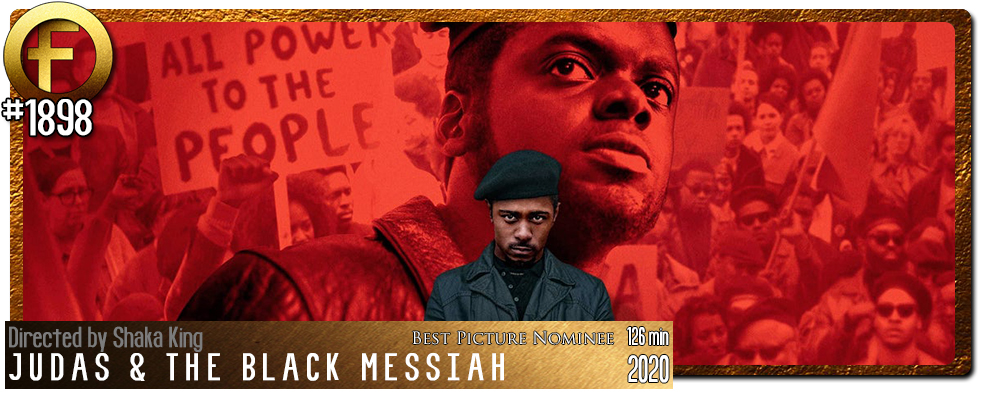
Principal Cast : Daniel Kaluuya, Lakeith Stanfield, Jesse Plemons, Dominique Fishback, Ashton Sanders, Algee Smith, Darrell Britt-Gibson, Lil Rel Howery, Dominique Thorne, Martin Sheen, Amari Cheatom, Robert Longstreet, Caleb Eberhardt.
Synopsis: Bill O’Neal infiltrates the Black Panther Party on the orders of FBI Agent Mitchell and agency head J. Edgar Hoover. As Party Chairman Fred Hampton ascends, falling for a fellow revolutionary en route, a battle wages for O’Neal’s soul.
********
America’s Black Panther Party is an organisation founded in 1966 ostensibly to give African-American Americans a voice in what was then a highly racist society. It was formed to oppose police brutality to minorities, and as a way of helping the poor an underprivileged in many impoverished suburbs across the United States. It was also a counterpoint contemporary civil rights viewpoint in that the Black Panther’s actively engaged in violent confrontations with “the pigs” – the police – and was seen as antithetical to the likes of Dr Martin Luther King’s methodology of peaceful resistance. In Hollywood, the Black Panther Party has been co-opted, almost stigmatised, to become a cliched “angry black men” trope in many ways, often without declamation of the motivations behind the organisation. So it is with enormous enthusiasm that I embrace Judas & The Black Messiah, a film about and for the Black Panther Party and its history, now fading into memory since the organisation’s dissolution in the 1980’s. It’s a film that pulls no punches, offers a duo of mesmerising leading performances, and most pertinently reinvigorates the discussion – as if that ever faded away – of living black in America.

In America during the late 1960’s, petty criminal William “Bill” O’Neal (Lakeith Stanfield – Get Out, Sorry To Bother You) is arrested for impersonating a Federal Agent. He is picked up by FBI Agent Roy Mitchell (Jesse Plemons – The Irishman, Game Night) and blackmailed into infiltrating the local Chicago chapter of the Black Panther Party, to get close to its leader Fred Hampton (Daniel Kaluuya – Get Out, Black Panther) and provide the agency, led by the powerful J Edgar Hoover (Martin Sheen – The West Wing, Apocalypse Now). As he rises through the ranks of the party, Bill struggles with his sense of loyalty to those he secretly serves, and to those with whom he has begun to form an ideological bond.

Judas & The Black Messiah will have adjectives like “powerful” and “incendiary” thrown around to describe the film’s withering diatribe against racial vilification in America during the 60’s. It has seen lead actors Daniel Kaluuya and Lakeith Stanfield find themselves in the Academy’s “Supporting Actor” category because the field is so stacked for talent. It has once again kept the discussion of Black Lives Mattering at the forefront of popular culture through film, alongside recent celebrated entries like Blackkklansman (a film with which this sees more than one similarity), Selma, or even One Night In Miami (which was unjustly snubbed for a Best Picture nomination). Few would argue with its potency given the resurgence of white-on-black police violence in the last few years, and while it’s horrifying to witness how little has changed in the last half century since Fred Hampton, Malcolm X and Martin Luther King last walked the Earth, its a film that provides some manner of hope against the tide of tyranny minorities across America continue to face.
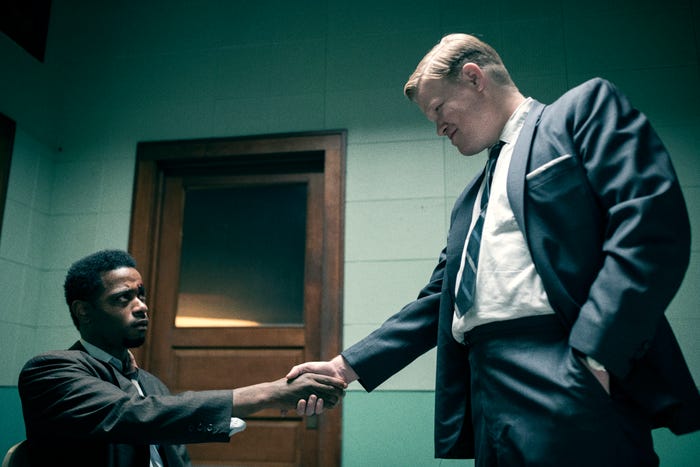
One part history lesson, one part introspective relationship dissection, Judas & The Black Messiah is a compelling character study of both Kaluuya’s Fred Hampton and Stanfield’s Bill O’Neal, both of whom are torn between their internal beliefs and those of the Black Panther Party. Kaluuya’s Hampton is a warrior, perhaps reluctantly and most certainly portrayed sympathetically in this film, with the actor offering a searing, iconoclastic firebrand portrayal of a man who cemented the Panther movement into folklore across the country with his galvanising oratorical style and enthusiastically engaging persona. Contrasting against Kaluuya, his Get Out co-star Lakeith Stanfield provides more of an outsiders viewpoint as to the militancy of the Panthers, with O’Neal having to constantly swallow his moral and ethical arguments in a self-serving, if entirely corrupted, manner. He truly wants little to do with Hampton and his associates but, through not wanting to spend years in prison for impersonating an FBI agent, is co-opted by the FBI to spend years figuratively “imprisoned” inside the Panthers as a mole. The question of his loyalty to Hampton later in the film is one that represents Messiah’s great dilemma: how far would you go to save yourself whilst working against your brothers for an ideal that would make the world safer to live in? Stanfield’s O’Neal is the film’s Judas, with Kaluuya (or more prominently the Black Panthers themselves) the Messiah of the title, a play on the New Testament story in which one of Jesus’ disciples betrays the Lord for 30 pieces of silver. The comparison is apt, really, with Hampton intending to eventually deliver his black brothers and sisters to the “promised land” of freedom from the yoke of tyranny.
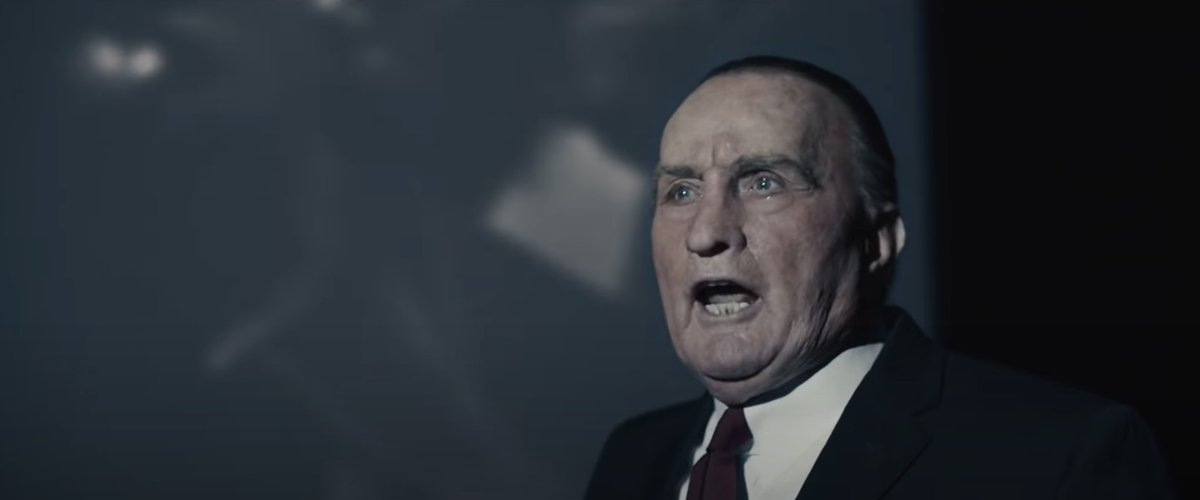
The film’s Oscar-nominated screenplay, written by Will Berson and director Shaka King, from a story by Berson, King, and Keith and Kenny Lucas, has long fermented through Hollywood as far back as 2014, with filmmakers such as F Gary Gray initially attached to helm. Eventually, King himself was tapped to direct and my dude has absolutely delivered. The film tackles themes of race (obviously), loyalty, friendship and love – Hampton was in a relationship with Panther advocate Deborah Johnson (Dominique Fishback – Project Power) at the time of his assassination in December of 1969 – and indicts both the FBI and the Chicago Police Department as complicit in many of the violent encounters depicted within. It’s easy enough to skew the FBI as the “big villain” here because it’s an organisation with enough black marks against its name everyone just nods in agreement, but you get the sense that, thanks to J Edgar Hoover’s malignancy running rampant at the time, the Agency was particularly set against civil rights thanks to overt racism within the organisation, resulting in what amounts to state-sponsored murder against a minority. There’s a lot of anger within Messiah’s all-caps messaging, as well as a lot of regret.
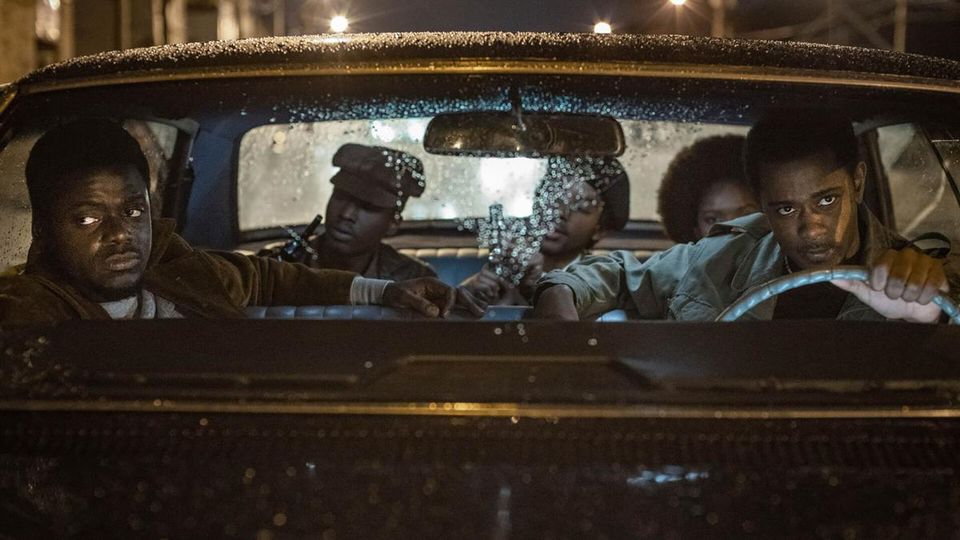
In keeping with the serious tone Messiah takes with this story, director Shaka King’s approach is one of brutality and muscularity. The violence, of which there is plenty, is thunderous yet restrained, realistic without being graphic, and the energy he brings to each scene, which is often a hairs breadth from exploding with rage, is magnificent. Admittedly things are augmented by powerful performances from the entire cast – hell, even Martin Sheen’s boo-hiss performance as J Edgar Hoover is memorable – but the narrative is propelled through dynamic framing and editing (shoutout to Kristan Sprague for his work chopping this one up) as well as Sean Bobbitt’s luxurious Oscar-nominated cinematography. The film’s brown and taupe colour palette registers the dark mood of the country as the Black Panthers gathered momentum in the last half of the 1960’s, and Bobbitt’s camerawork enthuses over the grim, often grimy nature the Party had to work in even as it invited other militant gangs to work with them, rather than against them.
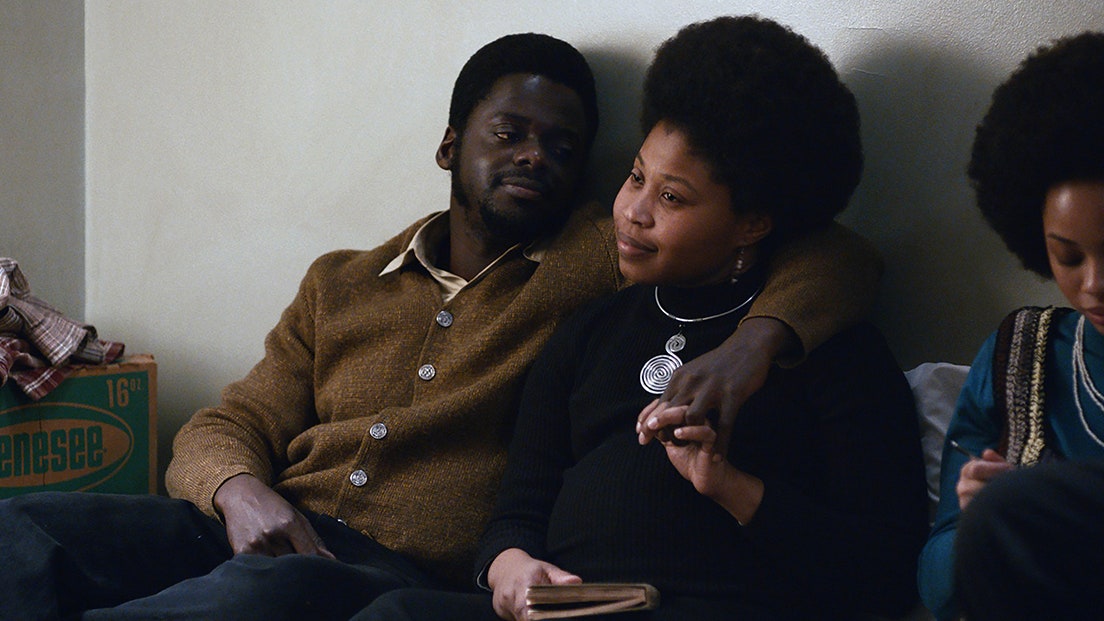
Judas & The Black Messiah is a powerful, incendiary film that deserves all the recognition and conversation it inspires. It’s a fascinating dramatic retelling of one of America’s darker historical periods inside perhaps its darkest, that of the civil rights struggle that so dominated the political and social fabric of the day. It’s torturous that so little has changed in the years since, as well. Led by captivating and riveting performances by both Stanfield and Kaluuya, directed with ferocious understatement by Shaka King, and offering a contrast to the year’s other thematic masterwork in The Trial of The Chicago Seven (in which Fred Hampton is depicted by Kelvin Harrison Jr, alongside Black Panther founder Bobby Seale, played by Yahya Abdul-Mateen II), Judas & The Black Messiah is arguably one of the great contemporary depictions of the Civil Rights period and an angry, white-hot diatribe against police violence in all its forms. It is also essential viewing.
